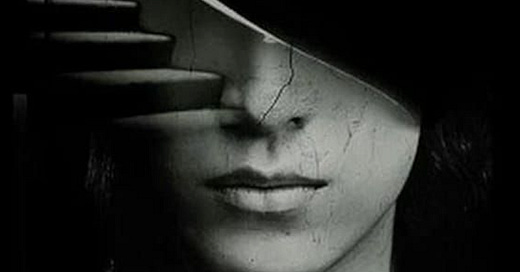In my lifetime, I think I’ve pedestalled maybe three people I personally know—and most certainly some in the public eye! Although I have never really been drawn to idolize Hollywood icons or celebrities, I found myself pedestalling a few people for entirely different reasons. I feel my humanity saying this today.
Let’s take a look at an online definition:
Placing someone on a pedestal (pedestalling someone) refers to:
Idealizing or elevating a person—often to an unrealistic or exaggerated level—by viewing them as better, more virtuous, or more capable than they actually are. Excessively admiring them, often in a way that overlooks their full humanity or flaws. It's a form of putting someone above you in perceived worth, wisdom, beauty, or power.
This can occur in personal relationships, public admiration, or spiritual/teacher-student dynamics. When someone is "on a pedestal," they’re often perceived as flawless or above normal human complexity, which can create:
· Power imbalances – the person being idealized is seen as “above” the admirer.
· Disillusionment – once the admired person shows human flaws, the pedestal can quickly crumble.
· Self-diminishment – the one doing the pedestalling may unconsciously devalue their own worth.
Psychologically, it often reflects projection: We project parts of ourselves (aspirations, desires, disowned strengths) onto someone else rather than owning those qualities within ourselves.
In essence, to pedestal someone is to elevate them so high that they are no longer seen clearly, but rather through the lens of fantasy, aspiration, or unmet personal needs.
*******
I started writing this last week and paused, then saw the word show up uncannily numerous times in different arenas. You know how that is? So I decided to finish it.
I’ve come to realise that whenever I place someone above myself, I unknowingly create an imbalance. I diminish my own worth, handing over fragments of my power like quiet offerings. This gives me an icky feeling as I write this. This act of elevation, however unconscious, creates a dynamic of power-over, and at some level, the other person also feels it and can use it in hurtful ways, and it rarely ends well.
Because a pedestal is not the most stable structure, once someone is up there, the only direction left is down. Whether they fall or we remove them, the setup has the seed of collapse from the beginning.
We all do it!
Often, we pedestal others because we see something in them—something that resonates or stirs us. This is sometimes what’s called a light shadow: a quality we admire, even aspire to. We see it shining in them but hesitate to claim it as our own.
Yet if we recognize it, if it stirs something deep, chances are it's already in us. Maybe dormant, maybe tender, but undeniably there, waiting for cultivation.
I’ve also noticed that placing someone above us can invite resentment. It can sneak in when we see them as “better than” or feel unworthy in comparison. It’s a setup for disappointment, disillusionment, and even quiet self-betrayal. We risk not only our own grounding but theirs, too. It’s a heavy weight to carry: someone else’s expectations of your perfection.
Last night in one of my courses, a Werner Erhard quote was shared. When someone told him they had him on a pedestal, he responded, “There’s room for both of us up here.” That lands with me. If there must be a pedestal, let it be wide enough, big enough, sturdy enough for all of us to rise together, not as an act of hierarchy, but as shared elevation.
Still, I’m leaning more toward no pedestals at all.
Instead, let’s build upward steps—steps we walk side by side—steps that support us as we rise into purpose and passion. Let’s choose growth that lifts everyone, where no one needs to shrink for another to shine.
The world needs more of this—collaborative rising, reciprocal encouragement, and the kind of community that cheers when you win because your joy is our joy.
I’m a loyal supporter by nature. I love to see people win.
Let’s be grounded, real, and beautifully human. And let’s lift each other up, not onto precarious pedestals but onto stepping stones of support, courage, and mutual celebration.
Because community is essential. Community is the way.




